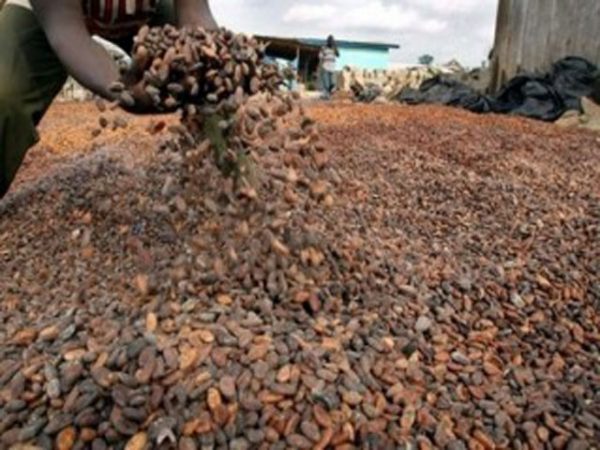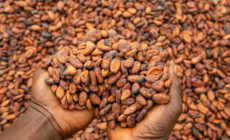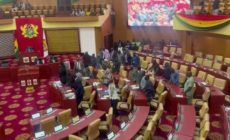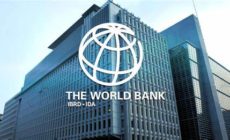Ghana produced a record 1 million tonnes of cocoa in the 2010-11 season, but output has since declined to around 800,000 tonnes due to poor management and underpayment of farmers, the World Bank said.
Farmers are paid a fixed price each year, known as the farmgate price, which is announced by the regulator, Cocobod, before the season begins in October.
But the World Bank said a lack of transparency and low prices made it impossible for farmers to plan future crop investments.
“The board (Cocobod) has been unable to achieve one of its most important goals – to stabilise farmgate prices at levels that permit farmers to earn an adequate return on their land, labour and capital,” the report said.
Instead, Cocobod, which is also Ghana’s sole cocoa exporter, has been more focused on getting a better margin on exports, which increases government revenue in the short term but dents farmers’ wages and investment.
The export margin made in Ghana is about double that of neighbouring Ivory Coast, the World Bank said.
“Successive governments have prioritised revenue collection, treating the final price received by farmers as a secondary consideration rather than an objective,” the World Bank said.
Reforms to Cocobod’s “institutional arrangements and policy framework could greatly increase cocoa output with a minimal budgetary impact,” the draft report said.
Cocobod also has control over the distribution of fertilisers and disease-controlling chemicals to farmers. Its mismanagement in this area has also hurt production, the World Bank said.
“Distribution is often erratic and is subject to corruption and capricious political interference,” the World Bank said. Sometimes farmers never receive the supplies, which are often smuggled to neighbouring countries.
Cocobod Chief Executive, Joseph Boahen Aidoo, told Reuters that management was aware of the report and that it would meet to gain a “full understanding” of the issues raised.
The World Bank report is due to be published but the release date has not yet been fixed.
Ghana, which also exports gold and oil, is following a three-year, $918 million aid programme with the International Monetary Fund to restore fiscal balance and reduce a distressing public debt.
The government of President Nana Akufo-Addo, which took office in January, aims to restore cocoa output to 1 million tonnes by 2020.
-Reuters
Corruption, mismanagement denting cocoa industry – World Bank
- Posted on
- Comment
 CORRUPTION and regulatory mismanagement of Ghana’s cocoa industry are denting production and harming farmers, underlining the need for reform, the World Bank said in a draft report seen by Reuters.
CORRUPTION and regulatory mismanagement of Ghana’s cocoa industry are denting production and harming farmers, underlining the need for reform, the World Bank said in a draft report seen by Reuters.










 (Selorm) |
(Selorm) |  (Nana Kwesi)
(Nana Kwesi)